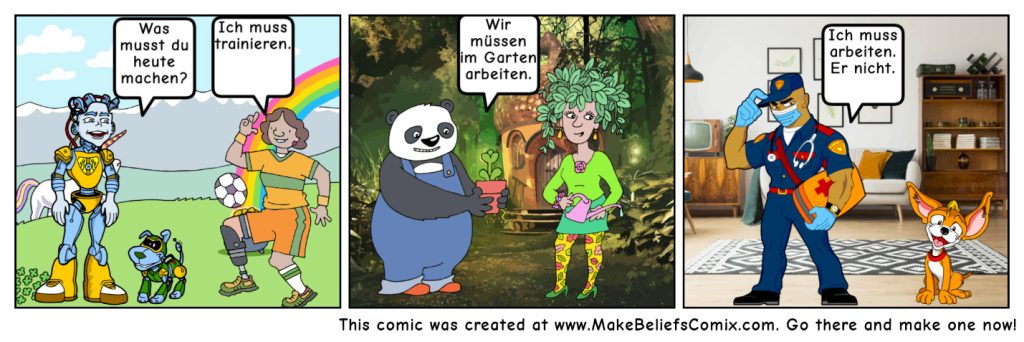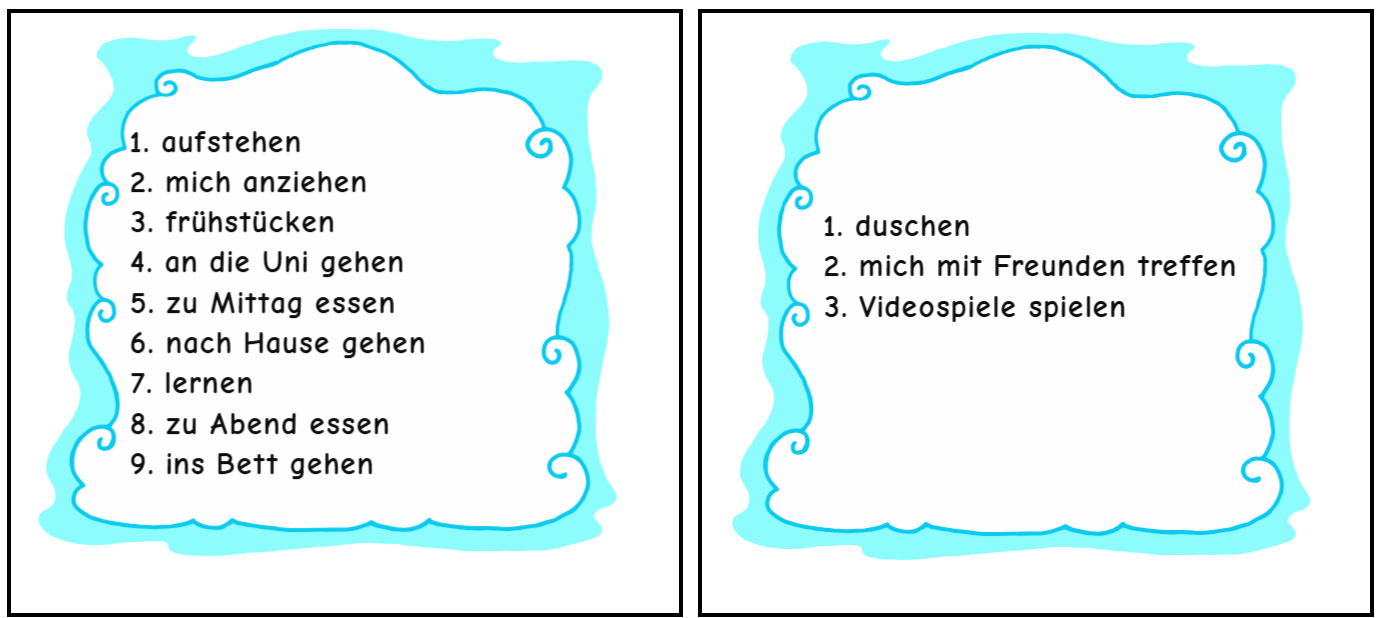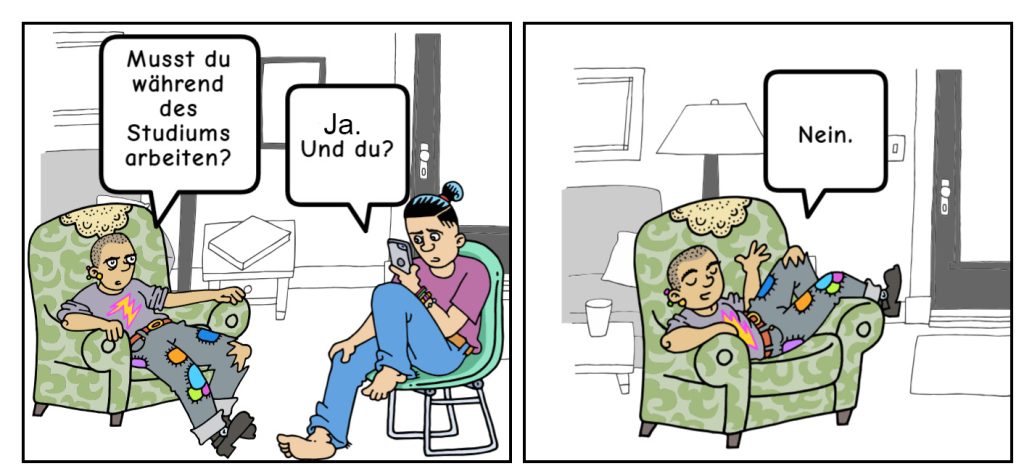5.9 Die Tagespflichten

Servus!
Zum Aufwärmen machen wir unseren Tagesminiplausch und eine Wiederholung.
Wiederholung
In the previous lesson, you learned how to say your daily tasks. Let’s review what you have learned.
What is the first thing you do in the morning? What is the last thing you do at night? Write these activities down in your written journal as a review. Can you say them aloud with confidence? Record them in your audio journal.
Lektionsüberblick
In this lesson, we will single out things you have to do. In the end, you will be able to 1) say what things you have to do, 2) say whether you have to work during your studies, and 3) say when you have to do things.
1) Was ich machen muss
Until now, we have talked about our day as a series of things we do. Now we will shift to state which things we have to do. This looks a lot like the English “I must …” is “Ich muss …. What things must you do? What things can you skip?
Read the comic below. Can you tell what activities the characters must do today?

Media Attributions
- 1010-1020 banner long large reduced
- 5.9 comic was musst du machen © This comic strip was generated at http://www.MakeBeliefsComix.com. Used by permission of author and site creator Bill Zimmerman.
- Comic made at www.MakeBeliefsComix.com
- 5.9 comic arbeiten make-beliefs-comix-18-e1730573305836 © This comic strip was generated at http://www.MakeBeliefsComix.com. Used by permission of author and site creator Bill Zimmerman.
- Photo of woman waking up by pexels-olly-3807632
- Photo of students walking by pexels-george-pak-7972513
- 5.9 arbeiten koch pexels-jonathanborba-28703300-scaled-e1730574899376-768×969
- Private: confidence scale_large horizontal_updated









